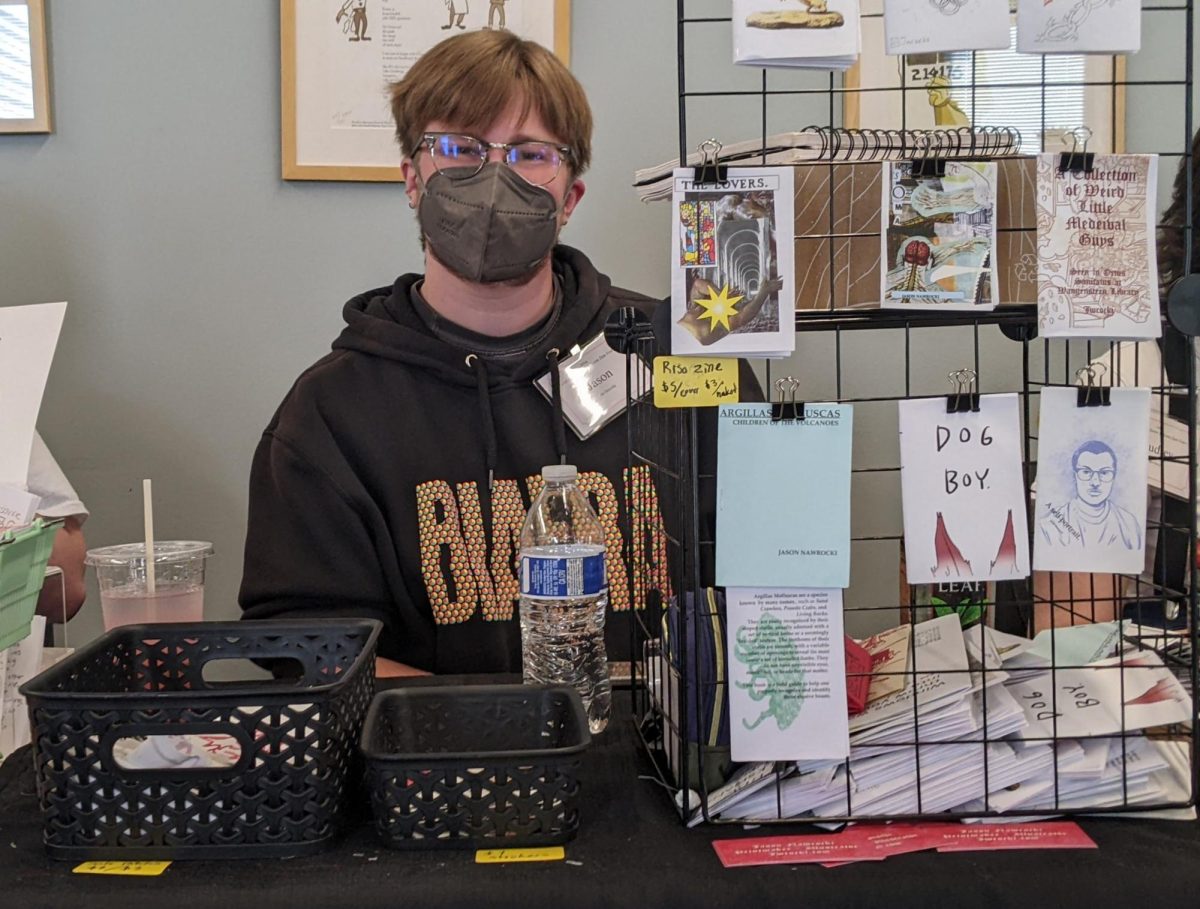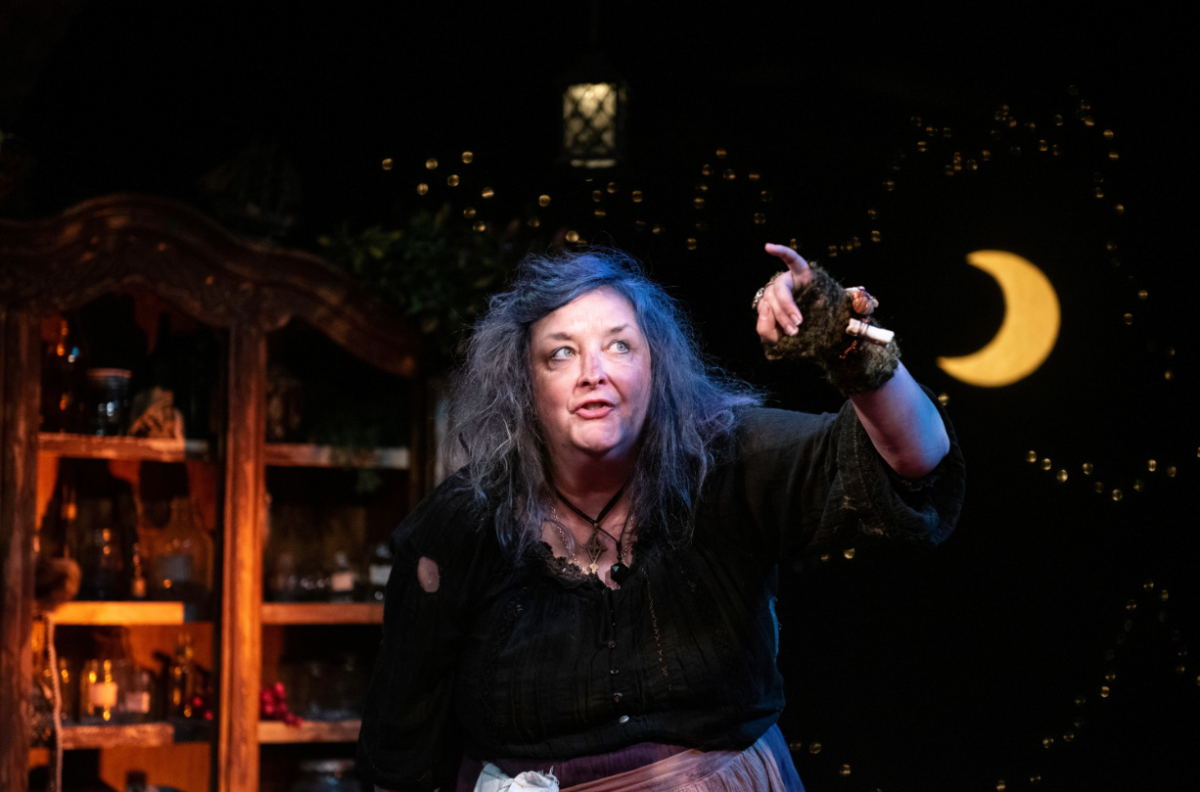H ashirigaki begins with a nearly pitch black stage. Three female performers – incidentally the show’s entire cast, consisting of Marie Goyette, Charlotte Engelkes and Yumiko Tanaka – dressed in black stroll across a metal grate floor and put objects into two black doors as if sending them off into a distant world. Most appropriately, they carry a surf board to one of the doors. Brian Wilson’s Pet Sounds starts off the show, and plays throughout. Heiner Goebbels’ Hashirigaki, playing Thursday and Friday at Ted Mann Concert Hall, employs dreamlike lighting, haunting Japanese music, modern dance and excerpts from Gertrude Stein’s The Making of Americans (an experimental novel exploring language usage).
ashirigaki begins with a nearly pitch black stage. Three female performers – incidentally the show’s entire cast, consisting of Marie Goyette, Charlotte Engelkes and Yumiko Tanaka – dressed in black stroll across a metal grate floor and put objects into two black doors as if sending them off into a distant world. Most appropriately, they carry a surf board to one of the doors. Brian Wilson’s Pet Sounds starts off the show, and plays throughout. Heiner Goebbels’ Hashirigaki, playing Thursday and Friday at Ted Mann Concert Hall, employs dreamlike lighting, haunting Japanese music, modern dance and excerpts from Gertrude Stein’s The Making of Americans (an experimental novel exploring language usage).
In Japanese, hashirigaki means “running, rushing or writing fluently” according to the Walker Art Center’s press release, although no online Japanese-English dictionary lists such a word. The show often depicts rapid movement, but elsewhere the show is slow and labored. One scene shows a dancer who looks as if she could be making balloon animals while she slowly contorts her body inside a puffy, air-filled costume.
Currently a professor at the Institute for Applied Theatre Studies in Germany, Goebbels is an eminent contemporary composer and producer in Europe who has written music for theater, dance and film. Often referred to as a magician by critics, Goebbels relishes in mixing musical genres in his theater pieces, frequently playing with electronic, pop, art rock and traditional folk music. However, Hashirigaki is about so much more than the music. It is a visual spectacle, animated by three performers, magnificent lighting, and objects.
After the initial scene, one of the actors speaks into a megaphone, reciting from Stein: “Certainly some people are doing one thing, and one thing again…” Another cast member joins her. They sit and bounce lightly on blue plastic balls and talk in playful, squeaky voices normally reserved for telling stories to small children: “to be wanting to be needing to be doing something Ö and doing it again and again and again.” They play with Stein’s words, creating a sense of rhythm. They repeat phrases “and another thing” and “and another thing again.” This is not intended to be irritating, although too much more of such banter could potentially induce a brain hemorrhage.
Thankfully, Yumiko Tanaka’s gentle plucking of the Shamisen, a Japanese skin-covered lute, brings us back to serenity. In the darkness, she sits in the corner of the stage, playing peaceful Japanese folk music. A flash of light as quick as a camera shudder illuminates the stage. The dark silhouette of a dancer brilliantly contrasts the vivid blue background. She moves slightly, and then more darkness until the flash comes again.
In another scene, a woman runs across the stage with a mallot in hand, hitting bells attached to long tethers that dangle from the ceiling. She bangs one and then rushes to the next, frantically swinging her arm as she crosses the stage. As she plays, the tethers twist together and the luminous backdrop slowly changes color, like a mood ring: from deep blue to spring green to sunset red. Finally, we hear the enchanting sound of the Koto, a long zither whose crouching dragon shape has become fundamental to Japanese music. However, this sounds strangely like bluegrass.
Goebbels combines these otherworldly images and ethereal sounds to create this poetic theater experience. The bold colors, the powerful and diverse musical styles, the dancing and softening of cultural boundaries engross the senses. He unites these elements to create a dimension where the unforeseen is usual, and foolhardy play is expected.
.







